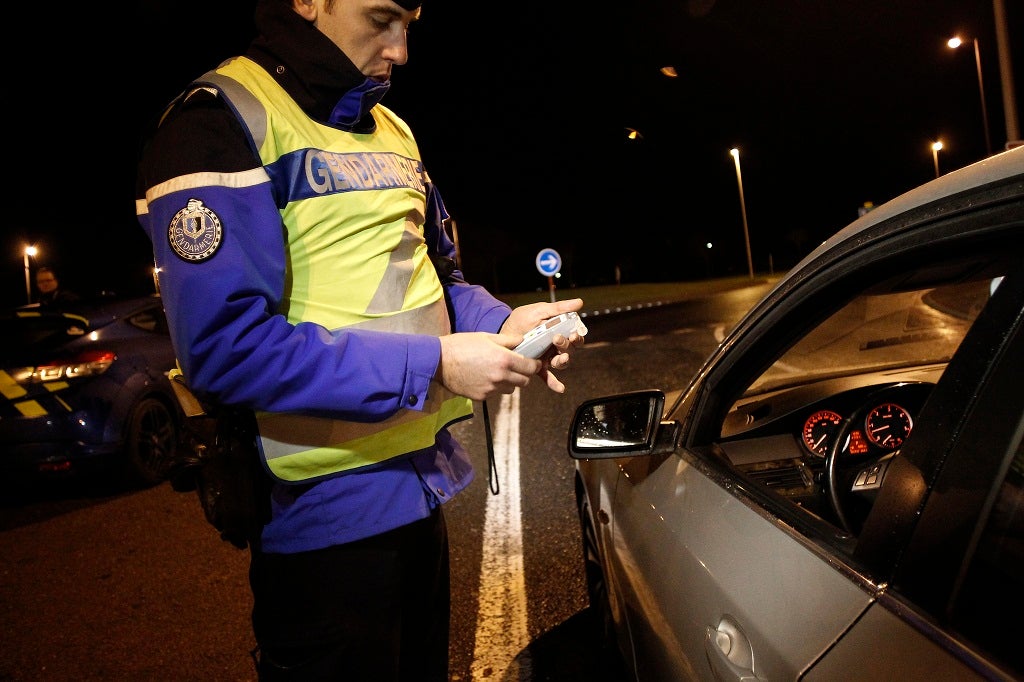New iPhone apps read blood alcohol levels and hail taxis
Simple to use breathalyser gadgets will help combat drink driving

Your support helps us to tell the story
This election is still a dead heat, according to most polls. In a fight with such wafer-thin margins, we need reporters on the ground talking to the people Trump and Harris are courting. Your support allows us to keep sending journalists to the story.
The Independent is trusted by 27 million Americans from across the entire political spectrum every month. Unlike many other quality news outlets, we choose not to lock you out of our reporting and analysis with paywalls. But quality journalism must still be paid for.
Help us keep bring these critical stories to light. Your support makes all the difference.
New mobile apps to help combat drink driving will enable drivers to test their blood alcohol levels before getting behind the wheel.
Created in the US, BACtrack for iPhones and Breathometer for iPhones and Android smartphones, not only display readings within seconds but can also detect a user’s GPS location and call a friend, family member or cab should they surpass the limit.
Throughout America, a blood alcohol reading above 0.08 per cent is illegal for drivers, but the National Transportation Safety Board is recommending that this be reduced to 0.05 per cent.
Chief executive of Breathometer, Charles Michael Yim, argued that "It’s not about whether you’re at 0.05 per cent or 0.08 per cent. If you even have 0.01 per cent you should not be driving."
He explained that although breathalysers have been in use since the 1950s, connecting them with smartphones will be more cost-effective and attractive for modern users who may not have considered buying one before.
Due to be released next month, Breathometer is the cheaper app at $49 (£30) while BACtrack’s breathalyser costs $150 (£94).
More than 1.2 million people were arrested for drunk driving in America in 2011, according to data from the Federal Bureau of Investigation, while the National Highway Traffic Safety Administration reports that more than 10,000 people died in drunk driving collisions in 2010.
"People think 'Oh, I’m driving around the corner' but it’s not until they get pulled over that they realise they’re over the limit," Yim told Reuters.
Based in California, both Breathometer and BACtrack use ethanol sensors approved by US Food and Drug Administration standards and can calculate blood alcohol levels within a 0.01 per cent accuracy rate.
Users simply plug their device - no larger than a car key - into their smartphone’s headphone jack and blow on it. Any alcohol detected on the breath is then converted into a signal which the app processes and reports.
Drivers can work out long it will be until they are safe to drive and control when to stop drinking, as the app estimates the amount of time it will take them to sober up. Further features include the creation of drinking habits graph and the ability to share blood alcohol levels through text, Facebook and Twitter.
BACtrack has defended the concept of the social breathalyser stating: "We believe that if people are sharing and talking about their blood alcohol content, that’s definitely a good thing. It’s awareness, it’s educational and it creates a dialog about alcohol consumption."
But the Institute of Advanced Motorists road safety charity does not support the self-test apps. "We have two main concerns - they give an instant readout whereas alcohol concentration can increase over time and they may encourage people to have an extra drink up to the limit which they may not otherwise have had," explains their director of policy and research.
"They do have some value for assessing impairment on the morning after but on the night you are drinking they are not fool proof."
Join our commenting forum
Join thought-provoking conversations, follow other Independent readers and see their replies
Comments